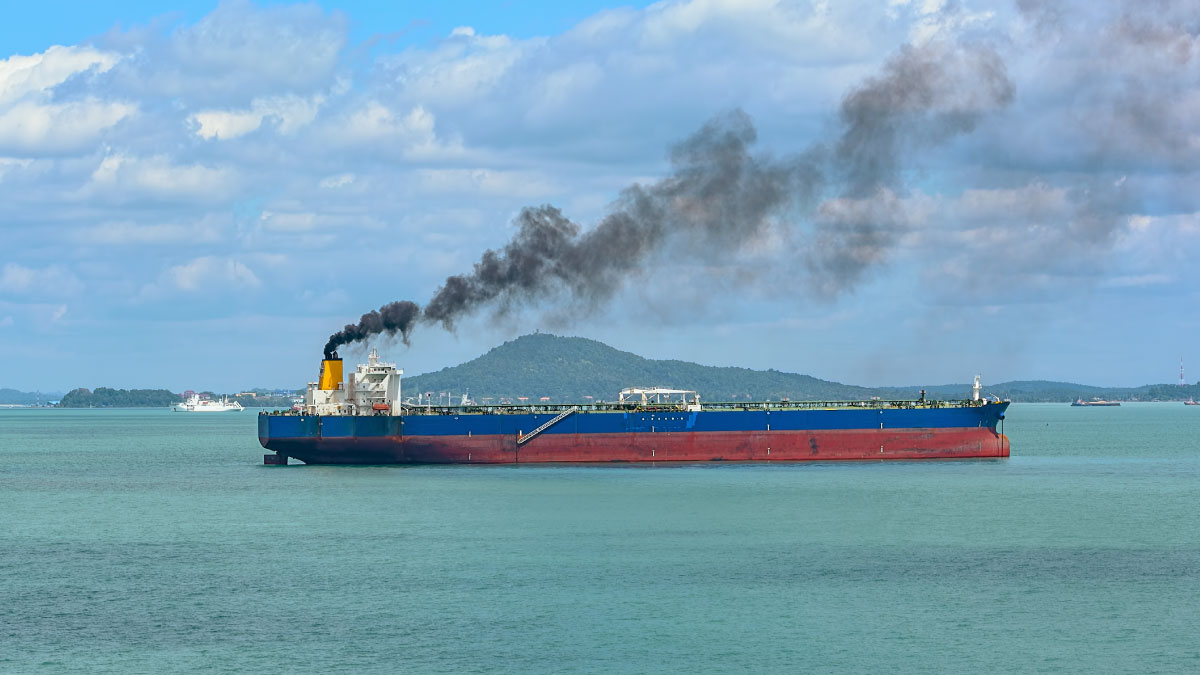Technical and financial assistance to poorer nations will help alleviate the costs of a planned transition to low-carbon shipping.
© Igor Groshev
Developing countries, especially small island developing states (SIDS) and least developed countries (LDCs), need support to adjust to global efforts to cut climate-warming emissions from international shipping, says an UNCTAD report published on 30 June.
The report provides UNCTAD’s assessment of the potential impacts of short-term measures agreed by members of the International Maritime Organization (IMO), which require ships to reduce their greenhouse gas emissions.
The measures, expected to enter into force on 1 November 2022, are part of IMO’s strategy to reduce carbon intensity in international shipping by 40% by 2030, compared with 2008.
The report underscores that achieving the decarbonization targets is “crucial for sustainable development in an increasingly fragile, interlinked and complex global ecosystem.”
The maritime transport industry, a lifeline of the global marketplace that delivers more than 80% of world merchandise trade, faces the dual challenge of cutting its carbon footprint and building its resilience and agility in the face of unavoidable impacts.
Yet navigating through the energy transition away from combustion systems that depend on fossil fuels is still a major challenge for the industry and poorer nations.
What vulnerable countries need
“SIDS and LDCs in particular will require technical and financial support to mitigate the costs of adjusting to low-carbon shipping,” said Shamika N. Sirimanne, director of UNCTAD’s technology and logistics division, which prepared the report.
“These vulnerable countries already face relatively higher transport and logistics costs, with most of their trade depending almost exclusively on maritime transport to access regional and global markets,” Ms. Sirimanne added.
UNCTAD’s research on transport costs shows that SIDS pay double the global average for the transportation of their trade, in part due to their remoteness and lower maritime transport connectivity. These factors enhance their vulnerability to disruptions and increased trading costs.
Given the resource constraints facing SIDS and LDCs, the report says some of these countries will require more support to mitigate the increased maritime logistics costs and alleviate the negative impact on their income, trade and sustainable development aspirations.
Developing coastal countries more affected
UNCTAD’s assessment shows that the impact of the IMO short-term measures, on average, will be relatively higher on SIDS compared to advanced economies.
“These changes will lead to a potential shift in logistics and trade patterns, including potentially trading more with less-distant markets and some regionalization,” the report says.
It notes that impacts affecting countries’ trade and GDP depend on factors such as trade openness, the modal share of trade flows, the price and the value of time of traded products and commodities, and the types of ships and distances travelled.
Impacts vary across countries
The IMO short-term measures entail potential uneven changes in countries’ trade flows (imports and exports) and GDP, the report finds.
At the aggerate level, both developed and developing economies will be affected by the measures, but differently.
“However, at disaggregated trade flow and sector levels, some aspects are likely to affect developing countries more,” the report says.
The challenges are surmountable
The report emphasizes that not all is lost: The challenges of decarbonizing shipping can be overcome, and low-carbon shipping objectives can be achieved, while at the same time promoting countries’ development aspirations in line with the UN Sustainable Development Goals.
The report calls on policymakers to aim at high-ambition reductions of greenhouse gas emissions from shipping and to assist weaker economies in adjusting to the transition.
UNCTAD also stands ready to support countries, especially the most vulnerable, to design appropriate policies and responses.

